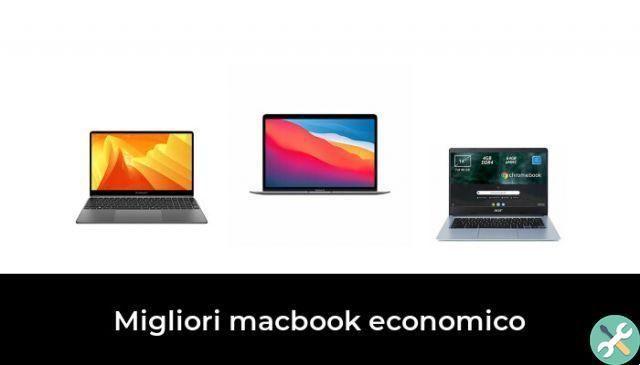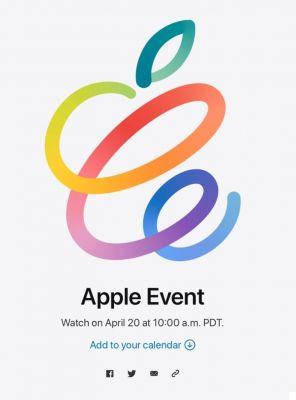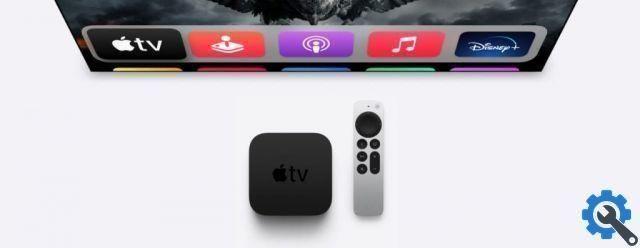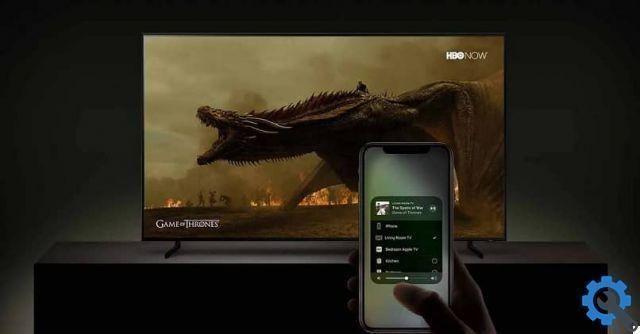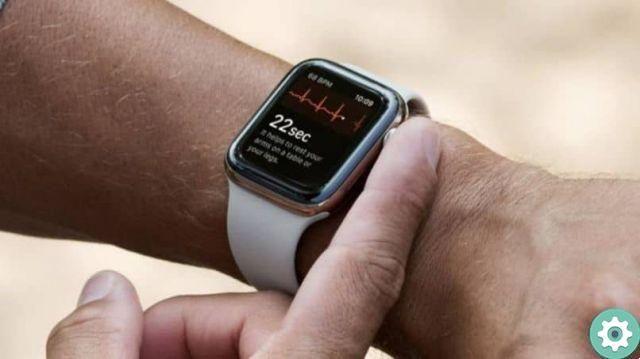Here begins the story of the Fortnite case against Apple, in which he wants to be able to open his own store within the App Store, without having to pay Apple anything.
If you want to know how we got here, I recommend that you read our extensive mutual coverage on Forntite, but what did you do?
20st May: Apple requests that one of Epic Games' claims be dismissed in advance
The first day of the trial between Epic Games (creator of Fortnite) and Apple began, with the companies offering their keynote speeches. District Judge Yvonne Gonzalez Rogers presides over a North Carolina court.
The saga begins in August 2020, when Apple removed the Fortnite app from the App Store after Epic Games introduced a direct payment method in the app to purchase the in-game currency, V-Bucks, despite the rules of the game. 'App Store. As it became clear, it was all a long-planned strategy, since a few hours later Epic Games filed a lawsuit against Apple, accusing it of anti-competitive actions and describing the App Store as a monopoly.
The contradictions of Epic Games
Epic Games CEO Tim Sweeney testified Monday in the Epic Game v Apple case setting out his reasons for Epic's lawsuit against Apple.
Two of the main points of EPIC's fight against Apple are, on the one hand, the restriction of third-party application stores and the 30% commission that Apple applies to all applications that bill more than a million dollars a year and commissions. for in-app purchases.
In his words, "Epic did not initially take a critical view of Apple's policies," Sweeney said. "It took a long time to be aware of the negative impact Apple's policy has."
Asked if there are differences between Apple's 30% in-app purchases and similar commissions paid to console creators, Sweeney said there is a "general deal" in the gaming industry. Consoles are being sold at a loss and must be recouped through the fees they charge to game developers, while you make money from the iPhone.
As for the action that ultimately led to the removal of "Fortnite" from the App Store, Sweeney said that "I wanted the world to see Apple exercising full control over the availability of all software on iOS."
Sweeney was also questioned about V-Bucks, the in-game virtual currency of "Fortnite". Apple's lawyer asked him about the marginal cost of a V-Buck. Sweeney said there was no cost to produce them.
Apple's lawyer showed a table with the policies of other companies such as Sony, Microsoft and Nintendo. All charge a 30% fee, prohibit downloading applications from other sources, and require the use of a proprietary and exclusive payment system.
Sweeney, in turn, acknowledged that Epic Games continues to sell V-Bucks on those platforms because it agrees with those companies' business models. As an anecdote, the CEO of Epic Games confirmed that in the 90s the company charged a 60% commission to developers who distributed their applications through the Epic platform.
Epic's CEO acknowledged that he is not "completely sure" that Apple would remove "Fortnite" from the App Store after implementing the direct payment system.
The contradictions of Apple
Apple's arguments have remained constant over time, both in the case of Epic Games and in all cases where the rules of the App Store have been challenged. It goes something like this:
The App Store has created millions of businesses and jobs and triggered more than a decade of economic growth in that ecosystem.
Epic's petitions would nullify everything Apple and the developers have created and everything users trust and love.
It would also require Apple to license your IP to anyone who requests it.
As it became clear, the App Store is not so safe - you can read here and here. And its rules don't apply so equally to everyone, for example, Amazon is known to have a special deal (for lower fees) in exchange for developing apps for Apple platforms.
The developer of the Hey mail program saw his app banned from the App Store because it required haggling on its website to use it. However, the same is true, for example, with Netflix and no one has proposed kicking Netflix out of the App Store.
Initial comment
Fortnite's arguments are weak, both from a personal point of view (they decided to break the rules and therefore expulsion is what appears in the agreement signed by the App Store) and from an economic point of view: their defense of whoever wants having your own shop without paying Apple to be able to charge your commissions to those who want to sell through their platform is not without a certain irony, as from a monopoly point of view: that Fornite continues to exist on other platforms, on the web, etc. . Prove that the App Store is not a monopoly.
On the other hand, if this judgment forces Apple to review its contradictions, to evaluate its own complacency and to correct deviations that cause its enormous power, we will all win: developers, users and - we are sure - in the latter case also Apple. .
Day 2: Tim Sweeny testifies again
![So goes the test of Epic Games and Apple [Updated]](/images/posts/096394e14d2192ff760615e3b4b0a28a-0.jpg)
Epic Games CEO Tim Sweeney acknowledged that he would accept a special deal with reduced fees on the App Store if Apple offered it to him.
Sweeney returned to the booth on Tuesday to continue his testimony in the Epic Games v. Apple. In addition to acknowledging that what he was looking for was preferential treatment from Apple, during questioning he acknowledged that he was an iPhone user, as it is the most secure and private device, as well as acknowledging that 30% is a commission. standard in the other app stores. Despite this, in his opinion, the 30% commission in Apple's App Store could jeopardize the future of "Fortnite".
In addition to deepening the topics we have already talked about, both in this article and in the summary of the actions that led to this situation, in the Fortnite article, but what have you done? It was said that in 2015 Sweeney called Apple CEO Tim Cook to ask for a more open App Store.
According to the documents published in the context of the case, in the words of Sweeney "The App Store has done a lot of good for the industry, but it does not seem sustainable that Apple is the sole arbiter of freedom of expression and commerce in an app platform. . which is approaching one billion users ".
It is important to remember that Epic has its own app store in the PC world, where it competes with Steam and other platforms. In his store, the commission he charges to those who want to sell is 12%, and he occasionally offers exclusive content - not available on other platforms - by paying the developers for that exclusivity; It has also partnered with Facebook to offer one of its virtual reality games "Robo Recall" an exclusive on the original Oculus Rift.
The leaders who will testify are
- Tim Cook, Apple CEO
- Craig Federighi, senior vice president of software engineering
- Phil Schiller, Apple Fellow
- Matt Fischer, Vice President of the App Store
- Eric Gray, Director of Commerce and Payments
- CK Haun, Senior Director of Technical Services for Developers
- Trystan Kosmynka, Senior Director of Marketing
- Shaan Pruden, Senior Director of Worldwide Developer Relations e Partnership Management
- Michael Schmid, Director of the Games Division
- Eric Friedman, Direttore di Fraud, Algorithm and Risk Engineering
- Scott Forstall, former director of iOS
The case of the "cross wallet"
The feature called "cross-wallet" played an important role in the second installment of Epic Games v. Apple, where Epic and other developers argue that this payment method is not a viable alternative for in-app purchases.
Available as a continuity feature for users and optional for developers who do not wish to implement in-app purchases (and pay Apple its fee), the "cross wallet" alternative allows the use of in-game currencies that have been purchased. another device or platform. For example, "Fortnite" players can purchase V-Bucks on a PC or on the Epic website and use those V-Bucks to purchase in-game items on iOS.
Apple has allowed Epic to implement that common wallet in "Fortnite," which, according to Apple's lawyers, undermines the argument that developers have no choice but to use in-app payments and give Apple their commission. 30%.
![So goes the test of Epic Games and Apple [Updated]](/images/posts/096394e14d2192ff760615e3b4b0a28a-1.jpg)
Judge Yvonne Gonzalez Rogers asked Epic CEO Tim Sweeney why this option was not added to "Fortnite". According to the executive, his company could have implemented it but "they didn't see it as an attractive option for our customers."
"Leaving Fortnite, taking another device, browsing a website, making a transaction, is very inconvenient."
The judge replied that this discomfort didn't have to be a bad thing, considering the Fortnite audience.
“Why is it embarrassing that someone can't do what I would call, as a parent, an impulse purchase? González Rogers asked. Isn't this a responsible way of dealing with a young clientele? "
Sony, on its PlayStation, never allowed the "cross wallet" and it took a while to allow the game to be played on different platforms (continue a game with the same user on different platforms) - it activated it in 2018 (it had been launched Fortnite in 2017).
![So goes the test of Epic Games and Apple [Updated]](/images/posts/096394e14d2192ff760615e3b4b0a28a-2.jpg)
Benjamin Simon, CEO of the company that develops the Down Dog yoga app, intervened to testify that while it offers offline payments to its customers, Apple's rules hide the possibility of discovering that alternative form of payment., Apple has declined. multiple versions of Down Dog where users were informed that they could get a discount on their subscription if they did it through the web. That kind of advertising is a violation of App Store rules.
Simon added that Down Dog cannot easily communicate the discount to its customers through the mechanisms within the App and must instead send an email or use some other form of communication.
Epic witnesses criticize Apple's anti-advertising policies on the App Store
Two appraisers, called by Epic Games, argued that Apple's App Store policies, which prevent advertising other systems, make it difficult for iPhone owners to know what some apps can use on other devices.
Economist David Evans, who is arguing why Apple has an unfair monopoly on the distribution of iOS apps, specifically referred to measures that prevent developers from promoting other platforms and web pages on the App Store.
Evans offered the example of V-Bucks, the currency of the 'Fortnite' game, stating that it is "theoretically possible" for Fortnite players to purchase V-Bucks using the web browser rather than the iOS app. However, Apple prevents developers from advertising off-platform (iOS) mechanisms.
Judge Yvonne Gonzalez Rogers asked if eliminating such policies could mitigate the problem, to which Evans replied that it might be enough "for now" as this would reduce but not eliminate Apple's power. He added that this solution would not work for apps that don't have a web page or web version of the app, or for those consumers who don't have easy access to a computer.
Apple's lawyer suggested that companies could buy advertisements to let players know they can buy V-Bucks outside the App Store. The implication is that platforms should not be forced 'for competitive reasons to advertise all actions available to the consumer'.
![So goes the test of Epic Games and Apple [Updated]](/images/posts/096394e14d2192ff760615e3b4b0a28a-3.jpg)
Epic's other witness, Stanford economics professor of technology Susan Athey, also mentioned those restrictive policies during her testimony.
Consumers, Athey said, "can't tell by looking at their app on iPhone where they might find that app on other devices or platforms." Elsewhere, he also pointed out that subscriptions made through the Apple platform are linked to the Apple ecosystem. One solution, he said, would be "middleware" or systems such as alternative payment platforms on iOS or cross-platform application stores.
Apple's attorneys responded to his arguments by noting that he hadn't analyzed how much money users were spending to repurchase apps or renew subscriptions (if they wanted to use another platform), which Athey acknowledged. Apple also pointed to Athey's ties to Microsoft (Susan Athey, although a recognized and award-winning economist, currently works as a consultant for Microsoft, as well as a consultant researcher for Microsoft Research), as well as the fact that she did not have access to important related documents. with the App Store before testifying against the store.
Comment
We undoubtedly lack culture in North American trials, and surely Epic Games has a strategy to do them or to call certain witnesses with their arguments, but some things we read seem surreal, delusional and even counterproductive.
Oh, and Spotify: Apple pushes relentlessly
In an editorial published in the Wall Street Journal on Monday, Spotify's legal director, Horacio Gutierrez, says that "Apple's ability to strangle competitors is unprecedented" and uses Epic Games' trial as proof that "Spotify is no longer alone. In his criticisms of Apple.
Gutierrez also examines some of Spotify's recurring points against Apple, such as criticism of the 30% commission on subscriptions and in-app purchases, the ban on notifying users that there are other ways to buy or advertise subscriptions beyond outside the App Store.
"Apple will tell you it's excessive and that what Spotify wants is special treatment," writes Gutierrez, adding that all Spotify wants is "fair treatment."
Some illustrative data of the Epic Games vs Apple test
The epic against Apple is releasing some business figures that would otherwise be difficult to know, including market share, margins, etc. according to JP Morgan.
For example, Apple estimates that it collects between 23% and 38% of all transactions within the gaming industry, with the rest being shared across various companies. This would seem to support the idea that Apple does not have a monopoly in the segment.
Additionally, Apple highlighted the fact that a 30% commission is industry standard and that Sony, Nintendo, Google and Samsung all have the same commission.
One of Apple's main arguments is how the App Store has benefited developers. Since 2009, developer benefits in the App Store have increased 10x. As of December 2009, the App Store's annual profits were $ 1,2 billion. By 2019, that number had grown to $ 12 billion.
When it comes to "Fortnite" in particular, Apple's platforms account for a minority share of revenue. The sum of PlayStation and Xbox represents 75% of the revenue of «Fortnite». Between March 2018 and July 2020, only 7% of revenue was generated on iOS.
Likewise, iPhone and iPad devices don't seem to be the only choice of "Fortnite" players. According to data provided by Apple, 95% of iOS users regularly use or may have used devices other than the Apple iPhone or iPad.
Apple also used privacy and security topics in its presentation. For example, it says iOS devices have the lowest percentage of malware infections. Apple's mobile operating system receives 2% of all malware infections, while Windows receives 39%, Android 27% and 33% from other platforms.
How much time do users spend in Fortnite?
![So goes the test of Epic Games and Apple [Updated]](/images/posts/096394e14d2192ff760615e3b4b0a28a-4.jpg)
Michael Cragg, president of the economic consultancy Brattle Group, testified on May 13, called to testify by Epic, and presented the argument that other versions of "Fortnite" are not substitutes for the game on iOS.
This argument tries to counter the testimony of experts called by Apple who have ensured that gamers are not trapped in an Apple ecosystem and that they can choose where to play.
Fortnite players on iOS, for example, spend an average of 47 minutes a week playing games, while those who play on consoles, on the other hand, spend between six and seven hours on average.
According to Cragg, there are differences between playing on a console or playing on a mobile device. According to him, they are not interchangeable because mobile games are more of a "fleeting experience", while console games are more like a Hollywood movie.
![So goes the test of Epic Games and Apple [Updated]](/images/posts/096394e14d2192ff760615e3b4b0a28a-5.jpg)
This contradicts the testimony of Apple experts, economist Lorin Hitt of the University of Pennsylvania Wharton. Hitt assured that Apple does not have a monopoly in the mobile game market because developers have the ability to create games for other platforms.
Elsewhere in Hitt's testimony, he analyzed some data regarding Fortnite players on iOS. For example, 10,2% of all players used iOS between March 2018 and July 2020. That figure represents approximately 13,2% of all Fortnite revenue, which translates to $ 745 million out of a total of over. five thousand five hundred million entering the Epic Games game.
Hitt said Fortnite kept up to 88% of what players spent after Apple removed the app from the App Store. According to him, this shows that consumers "can and want" to switch platforms when it suits them.
The purchasing behavior of Fortnite users was also explained during the process. For example, a chart indicated that 5,6% of Fortnite players bought exclusively on iOS, while 2,8% made purchases on iOS and other platforms. About 15,8% bought exclusively on non-iOS platforms, and 75,9% did not make purchases.
What is an iPhone?
![So goes the test of Epic Games and Apple [Updated]](/images/posts/096394e14d2192ff760615e3b4b0a28a-6.jpg)
One of the arguments that you will hear repeatedly from Epic Games is that the iPhone (and the iPad) are fundamentally different from consoles like Xbox or PlayStation.
So far we haven't understood why they made that distinction, because the reasoning that Microosft or Sony lose money on consoles and have to get it back with gaming commissions seems strange and weak to us.
However, researching the transcripts of the trial, we found this, which clarifies / although does not justify, that view:
According to Epic, the market is divided between "special purpose" IT devices and "general purpose" IT devices, obviously the iPhone falls into the latter category.
The Xbox, on the other hand, is a device with a specific purpose built to play. That's why Microsoft keeps a tight grip on what can be used on the console.
On the contrary, a computer (for example with Windows, to continue with Microsoft) can do many different things, and that changes every day as new applications, functions or experiences appear, adapting to the life of the users.
Despite everything (it needs to be seen if the judge agrees with that arbitrary differentiation between devices), the argument has little run, since Microsoft, specifically, runs two platforms with the same limitations as Apple: one open with different sources. of application downloads (Windows) and another closed with an exclusive store on which it charges the same fee as Apple (Xbox).
Whether the openness or exclusivity of a platform is to be dictated by the opinion of the developers, that is what they are discussing now.
As Apple's lawyer said, turning to Microsoft, Sony and Nintendo, if Epic Games wins this lawsuit and the exclusive store is considered a monopoly (or an abuse of position) automatically all consoles are in the same position and will suffer the same. destiny.
The advantages of the App Store
Apple's App Store made a profit margin of nearly 78% in fiscal 2019, according to testimony presented by Epic Games, which used documents provided by Apple itself.
The figure was provided by Ned Barnes, a financial and economic researcher, who says he came to that conclusion from documents provided by Apple's corporate financial planning and analysis group.
Apple disputes the accuracy of Barnes's calculations and asked the judge to limit public discussion of the App Store benefits.
Apple refused to forgive Microsoft's 30% commission for Office
A 2012 email thread sheds light on the launch of Office for iPad and Apple's reaction to the news. Apple executives asked Microsoft if it wanted to attend WWDC that year, but Microsoft chose not to because they weren't. ready to talk about it. your plans for the iPad.
The thread, which includes Apple executives Phil Schiller and Eddy Cue, also details some requests from Microsoft. For example, Microsoft wanted Schiller and Cue to meet with their executives, such as Kirk Koenigsbauer - currently Microsoft's senior vice president, to whom the Apple team responded in the affirmative.
![So goes the test of Epic Games and Apple [Updated]](/images/posts/096394e14d2192ff760615e3b4b0a28a-7.jpg)
However, Microsoft also asked Apple to allow them to redirect users to their website to make purchases and thus avoid the 30% App Store fee. Schiller refused this request with a lapidary sentence: "Let's set up the shop, collect the revenues."
Apple loses at least $ 100 million by removing Fortnite from the App Store
![So goes the test of Epic Games and Apple [Updated]](/images/posts/096394e14d2192ff760615e3b4b0a28a-8.jpg)
This figure was mentioned in the interrogation of Michael Schmid, an Apple employee responsible for developing the business in games for the App Store.
Schmid declined to name an exact figure, refusing to confirm whether the revenue exceeded $ 200 million, saying it "would not be appropriate" to share such information.
Actual income could be a little more.
Schmid, who was the head of the Epic account, also confirmed previous claims that Apple spent a million dollars promoting Fortnite during its last eleven months on the App Store.
Apple asks for Microsoft testimony to be invalidated
Apple asked the judge in the Epic Games v Apple case to ignore the testimony of Lori Wright, Microsoft's vice president of Xbox Business Development, because her claim that games consoles are selling at a loss is not supported by documents to support that claim. .
Apple relies on the notice that the judge himself sent to the parties against the "surprises" of the trial, in which he announced that if one of the parties did not "provide a sufficient amount of relevant documents" the court "would understand that this lack affects the credibility of the witness who gives the testimony ". Therefore, this discredit could lead to "the elimination of the testimony".
Apple is once again demanding that Microsoft expert's testimony be invalidated
![So goes the test of Epic Games and Apple [Updated]](/images/posts/096394e14d2192ff760615e3b4b0a28a-9.jpg)
Apple filed a new petition with the judge on Wednesday asking her to issue a negative opinion on the credibility of Lori Wright, Microsoft's vice president of business development at Xbox, who testified on behalf of Epic. If you are successful, the judge can ignore your testimony.
Apple had previously requested such a measure, but raised its charges in the new request. Says Apple, “A reasonable observer might wonder if Epic serves as a shield for Microsoft. Microsoft has protected itself from any significant outcome in this litigation by not appearing as a party or by not sending a corporate representative to testify.
In its petition, Apple also complains that Microsoft has had internal communications and discussions with Epic about its decision to circumvent Apple's payment rules. "These internal communications were particularly relevant in light of Microsoft's relationship with at least five Epic witnesses and the possibility that Microsoft is using Epic as a civil party in a litigation that refuses to petition on its own," writes Apple.
La

![So goes the test of Epic Games and Apple [Updated]](/images/logo.png)


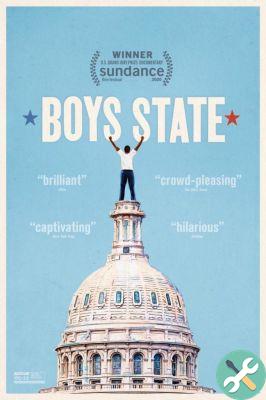
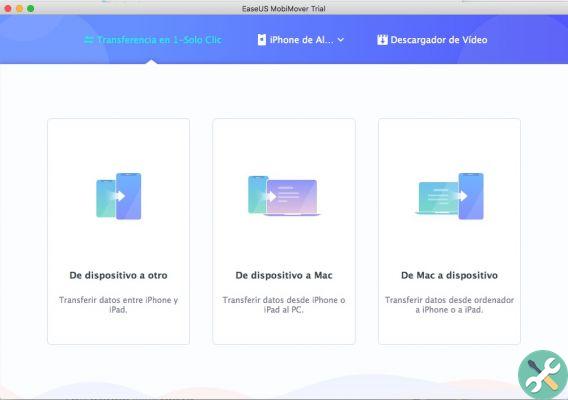
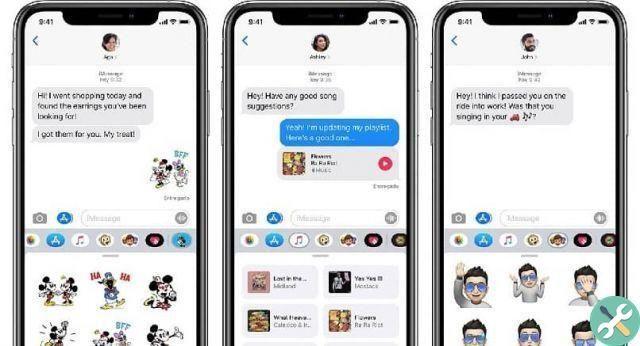

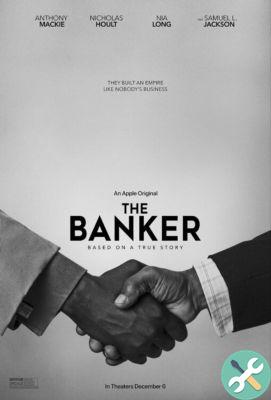


![Google also wants your Apple News [Updated] [2]](/images/posts/943dc0d8f28fcc4bc16fa30ed6d71f6a-0.jpg)



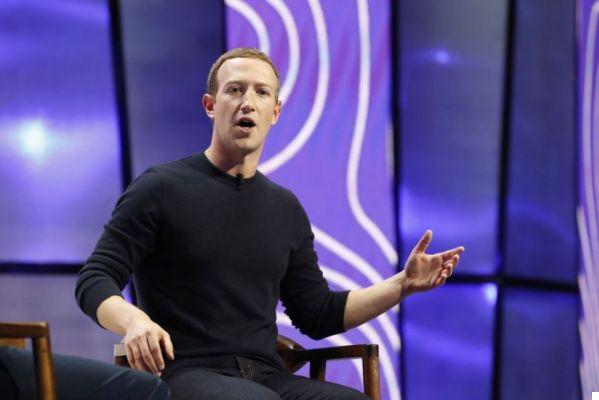
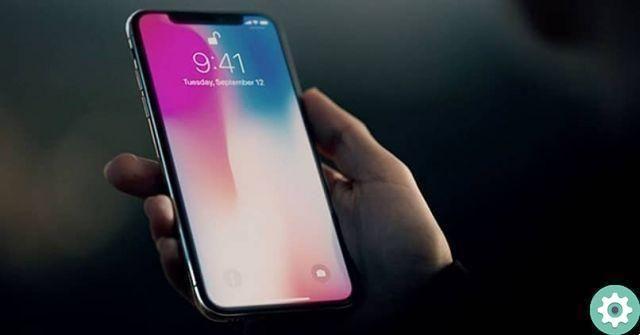
![Apple Vice Presidents Talk About Development of M1 for Mac [Updated]](/images/posts/c6254b668e5b3884d6b6338ccb8a02ff-0.jpg)

